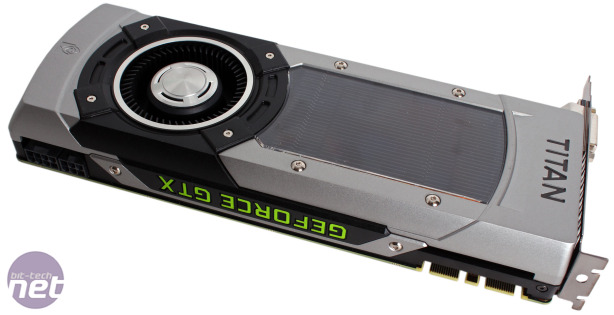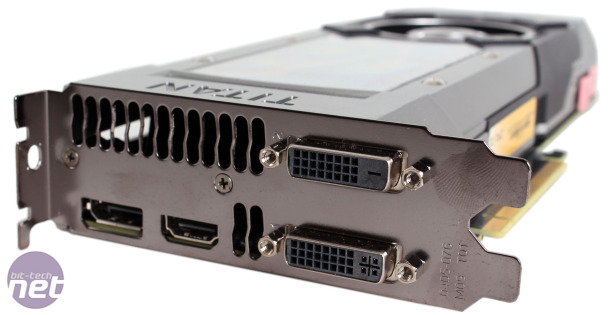Nvidia GeForce GTX TITAN Black Review: feat. ZOTAC
February 26, 2014 | 09:19

Performance Analysis
When we first looked at Battlefield 4, Nvidia's performance was less consistent than AMD's (who had many months to pre-optimise its drivers), and with lower minimum frame rates than we'd expect given the relatively high averages. The latest drivers appear to have addressed this, however, as the R9 290X is no longer ahead of the GK110 cards. As you'd expect, the GTX Titan Black comes out on top in most tests, beating the slightly slower GTX 780 Ti by 1 or 2fps at each resolution. The exception to this is 4K, where it offers no advantage over the GTX 780 Ti and still has a lower minimum frame rate than the R9 290X, a card which was designed specifically for 4K.Performance in BioShock Infinite, Crysis 3 and Skyrim can be summed up easily. In all three games and at every resolution, the GTX Titan Black offers 1 or 2fps extra performance compared to the GTX 780 Ti, with the exception being Crysis 3 at 4K, where the two cards perform identically. This means it is also quite clearly the fastest card currently available (at least in terms of reference clock speeds). The GTX Titan Black also offers anywhere between 4 and 14 percent improvements over the original GTX Titan in games. Compared to the R9 290X, advantages vary wildly – it's up to 30 percent faster in BioShock Infinite, for example, but often the difference is less than 10 percent.
The additional performance over the GTX 780 Ti is minor and solely a result of the small core clock speed increases – if the 6GB of memory was having an impact you would expect to see a greater difference in performance, especially at ultra high resolutions, which simply isn't the case. The differences are not something that the human eye will pick up, so in practical terms the GTX 780 Ti and GTX Titan Black are neck and neck.
The Unigine Valley benchmark confirms what we've seen so far, in that GTX Titan Black is the fastest single GPU but only just. It has a very modest 53 point lead over the GTX 780 Ti, which is less than 2 percent.
The power consumption and temperature figures are as expected. The GTX Titan Black draws 4W more from the wall in our stress test compared to the GTX 780 Ti and also runs 2°C hotter. With the high quality cooler, it's able to run significantly cooler and quieter than the AMD R9 290 series cards, which it consistently outperforms.
The pleasing 25 percent overclock we reached results in equally appetising real world performance gains, even if there are no single GPU cards left for the GTX Titan Black to overtake. In Battlefield 4, the new speed nets us 8fps more on the minimum, akin to 18 percent, while Crysis 3 increases by 3fps, a more modest 8 percent. The Unigine Valley benchmark is particularly responsive to the frequencies, jumping up by 16 percent to a score of 3,484.

MSI MPG Velox 100R Chassis Review
October 14 2021 | 15:04










Want to comment? Please log in.